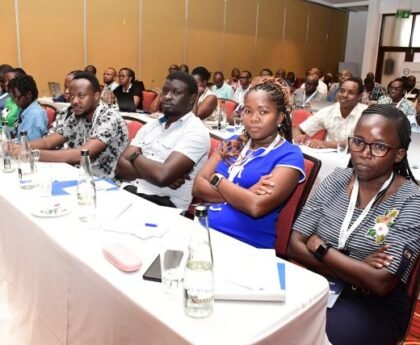The Government of Kenya has responded to Tanzania’s recent decision to ban non-citizens, including Kenyans, from operating certain small businesses, calling for the removal of the restrictions in line with regional economic integration agreements.
Tanzania officially enacted the new policy through a legal notice—Government Notice No. 487A—issued on July 28, 2025, under the Business Licensing Act.
The directive, signed by Minister for Industry and Trade Selemani Saidi Jafo, bars foreigners from engaging in 15 categories of business activities ranging from mobile money transfers and phone repair services to operation of kiosks, small shops, and micro industries.
The order defines a “non-citizen” according to the Tanzania Citizenship Act and prohibits such individuals from applying for or renewing business licenses in the affected sectors.
Offenders face fines of not less than Sh495,000 or up to six months in prison, with possible revocation of their visa or residence permits. Tanzanian citizens who aid non-citizens to operate these businesses may also be fined or jailed.
In response, Kenyan Cabinet Secretary for Investments, Trade and Industry Lee Kinyanjui on Wednesday said the government had taken note of the new rules and urged Tanzania to reconsider the move.
“Kenya acknowledges and respects the sovereign rights of EAC Partner States to legislate on domestic matters, but also believes in the importance of consultation, coordination, and consistency in implementing policies that affect cross-border goods transfer,” said Kinyanjui.
He noted that the new Tanzanian measures run counter to the spirit and obligations of the East African Community (EAC) Common Market Protocol, which promotes the free movement of goods, services, people, and capital across member states.
Kinyanjui stressed that the order could harm lawful investments by East African citizens and negatively affect the economies of both countries. He called for immediate bilateral engagements and urged Tanzania to revert to the trade provisions already agreed upon under the EAC framework.
The Kenyan government, through MITI, has been actively participating in forums aimed at harmonizing trade practices within the EAC. During the 1st Extra-Ordinary Sectoral Council on Finance and Economic Affairs (SCFEA), which Kenya attended, it was agreed that the EAC Secretariat would compile a list of taxes, levies, and charges by partner states that contradict the Customs Union Protocol. This report is expected by August 30, 2025.
In addition, member states were directed to harmonize their definitions of imports and exports as per EAC standards by June 30, 2025. A second SCFEA session focused on compliance is scheduled for September 30, 2025.
More bilateral meetings between Kenya and Tanzania have also been arranged to address the trade restrictions. These include a technical meeting on tobacco trade on August 4–5, 2025 in Arusha, and a Joint Trade Committee session on levies and fees to be held on August 11–12, 2025.
“We are, therefore, positive that these engagements will yield positive results grounded on the foundational principles of the EAC, including the free movement of goods, people, transfer of services, labour, and capital,” Kinyanjui concluded.




